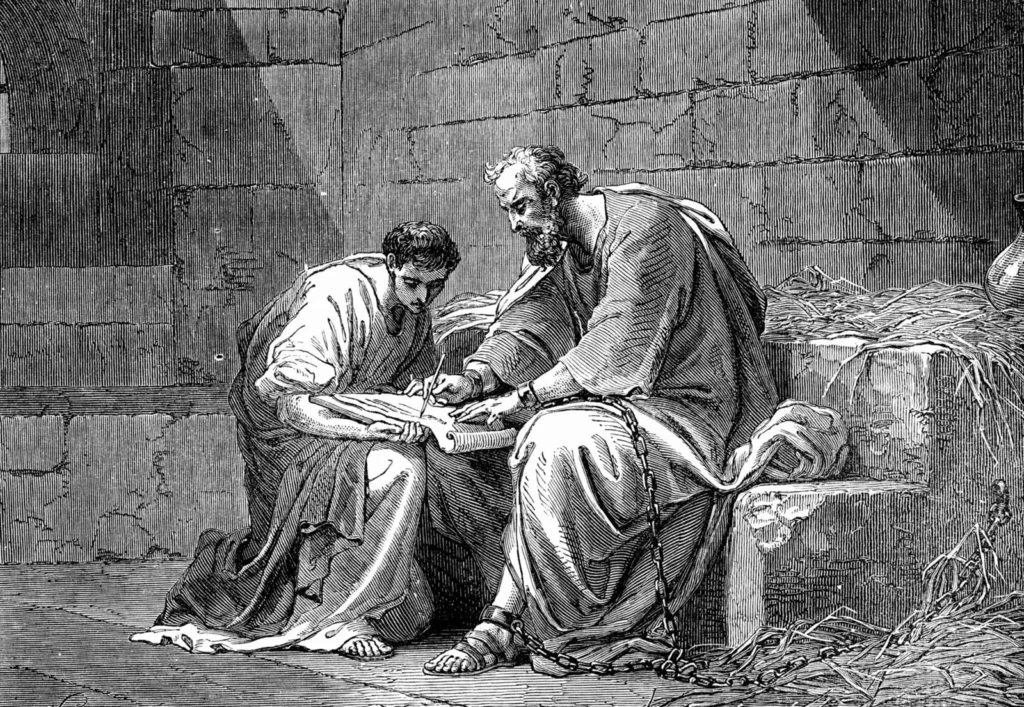And finally, the third biblical example of a general of God must be
Apostle Paul
God’s General.
Paul was a Greek-speaking Jew from Asia Minor. His birthplace, Tarsus, was a major city in eastern Cilicia, a region that had been made part of the Roman province of Syria by the time of Paul’s adulthood. Two of the main cities of Syria, Damascus and Antioch, played a prominent part in his life and letters. Although the exact date of his birth is unknown, he was active as a missionary in the 40s and 50s of the 1st century CE. From this it may be inferred that he was born about the same time as Jesus (c. 4 BCE) or a little later. He was converted to faith in Jesus Christ about 33 CE, and he died, probably in Rome, circa 62–64 CE.
In his childhood and youth, Paul learned how to “work with [his] own hands” (1 Corinthians 4:12). His trade, tent making, which he continued to practice after his conversion to Christianity, helps to explain important aspects of his apostleship. He could travel with a few leather-working tools and set up shop anywhere. It is doubtful that his family was wealthy or aristocratic, but, since he found it noteworthy that he sometimes worked with his own hands, it may be assumed that he was not a common labourer. His letters are written in Koine, or “common” Greek, rather than in the elegant literary Greek of his wealthy contemporary the Jewish philosopher Philo Judaeus of Alexandria. Moreover, he knew how to dictate, and he could write with his own hand in large letters (Galatians 6:11), though not in the small, neat letters of the professional scribe.

Paul believed that his vision proved that Jesus lived in heaven, that Jesus was the Messiah and God’s Son, and that he would soon return. Moreover, Paul thought that the purpose of this revelation was his own appointment to preach among the Gentiles (Galatians 1:16).
Paul, who considered himself to be the chief of sinners, and who once sought the destroy the church in its infancy, became its greatest advocate. His revelation of the gospel was like no other – saved by grace through faith. He blazed a path across Asia minor and Europe, planting church after church amongst the Gentiles. The early church proclaimed him as an apostle to the Gentiles in the same way Peter was an apostle to the Jews. His legacy is still with us today – not only a reviving the revelation of salvation by grace through faith but also two thirds of the New Testament – now that is legacy.
Of course, the other apostles would also join the ranks of God’s Generals as they pioneered the church throughout the known world, laying a foundation for many believers to follow. Matthew who laboured in Parthia and Ethiopia, Andrew in the Asiatic nations, Bartholomew and Thomas in India, Simon in Africa and Britain, and of Peter amongst the Jewish nation. Each of them deserves to be listed, not only for the ground-breaking ministry but also for the way in which they died. As John puts it,
“they loved not their life even when faced with death.”
(Rev 11:12)
From this time on came men and women of God who would stand up for the gospel, for Christ though it meant the arenas of death, the burning stakes, even crucifixion. The second century saw many martyred for their faith from Polycarp of Smyrna to Justin Martyr to Perpetua and Felicity and many, many more. Martyrdom of believers like Sigismund of Burgundy in 524 through to Joan of Arc in 1431 were common and numerous. They willingly gave their lives, leaving a legacy for us to follow – stand no matter the persecution, stand no matter where the cross of Christ my take us, “and having done all to stand, stand firm”. They blazed a path leaving a trail of blood to mark the way for the church to follow – for it is said that the blood of the martyrs is the seed of the church.
Over the coming episodes we will journey through the centuries, to hear the voice of those who have gone before us, not to lift them up as idols, but to heed their words, to take hold of their legacies and to run the race set before us spurred on by their courage to live for Christ.
